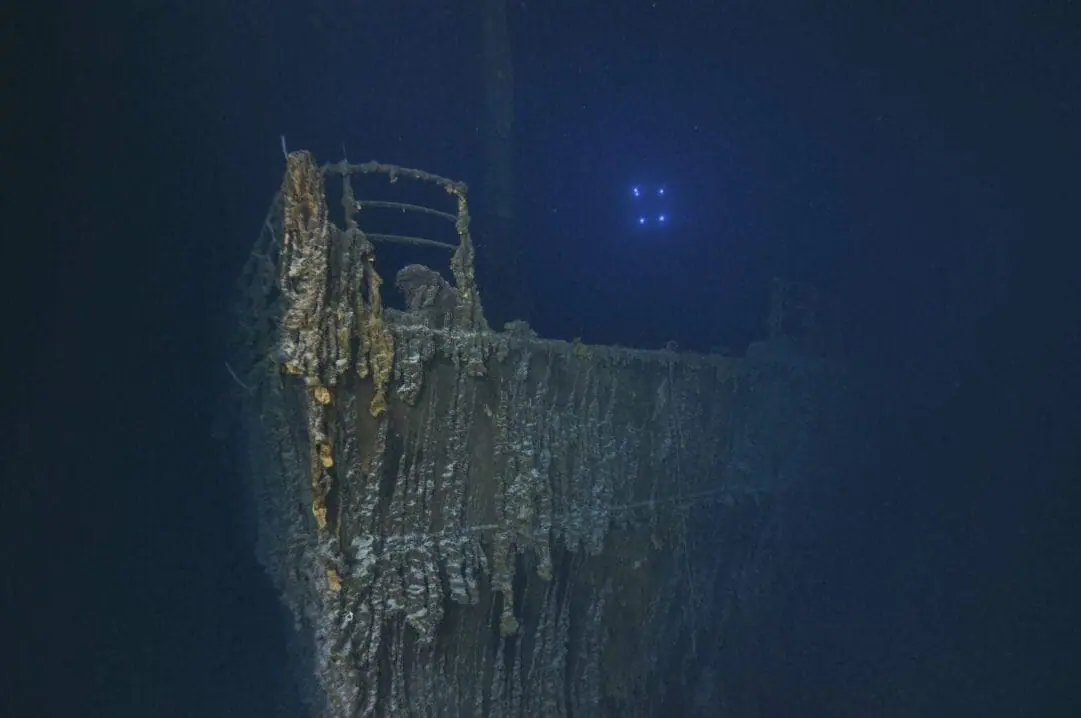New Titanic images reveal famed railing on ship’s bow has broken off
(CNN) — In the years since the Titanic sank after hitting an iceberg in 1912, we have become familiar with haunting images of the doomed passenger liner’s bow, lying at the bottom of the North Atlantic Ocean. Now, new photos taken this summer show that the view has changed dramatically.
The latest expedition by RMS Titanic Inc., an American company with salvage rights to the wreck, has revealed that a section of the previously intact railing around the front of the ship’s upper deck has fallen off. The 15-foot-long section now lies on the sea floor, directly below where it once was.
“We are saddened by this loss and the inevitable decay of the Ship and the debris,” the company said in a statement on its website.
“Over the course of the next few weeks and months, we will conduct a more thorough review of Titanic’s condition and her changes over time,” it continued.
“Although Titanic’s collapse is inevitable, this evidence strengthens our mission to preserve and document what we can before it is too late,” it added.
The July expedition, the company’s ninth since it first visited the wreck 1987, involved ocean imaging experts, oceanographers, scientists and historians working together to capture new images of the wreck to review its condition, identify artefacts and areas at risk, and contribute to ongoing conservation efforts, according to the company.
More than two million photos were taken, and the team searched for numerous artefacts.
This search yielded an exciting discovery.
On the final day of the expedition, the team found and photographed a two-foot-tall bronze statue of Diana, the Roman goddess of nature and hunting.
The statue, which once sat atop the fireplace mantle as a centrepiece in the Titanic’s First Class lounge, was ripped away and thrown into the wreck’s debris field when the lounge tore open as the ship sank, according to the company.
While the figure was photographed in a 1986 expedition, its location remained unknown until this latest expedition due to a tradition of secrecy surrounding the Titanic’s wreck, the company said.
Much of the art that decorated the halls and rooms of the ship “was made of organic materials, breaking down into the earth after many decades submerged in the hostile environment” of the ocean, the company said Sunday in an Instagram post on the statue.
However, Diana “is still resting upright among miles of debris. Like the eternal Roman deities, she is timeless–-and she is rediscovered thanks to Expedition 2024,” it added.
As scientists race to preserve its history, the legendary wreck is slowly perishing.
In 2019, footage from a series of dives by an exploration team from Triton Submarines revealed the effects of salt corrosion, metal-eating bacteria and deep current action on the decomposition of the ship.

